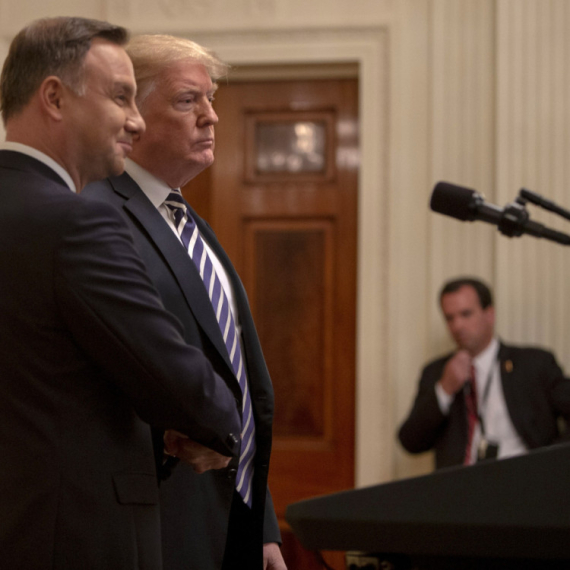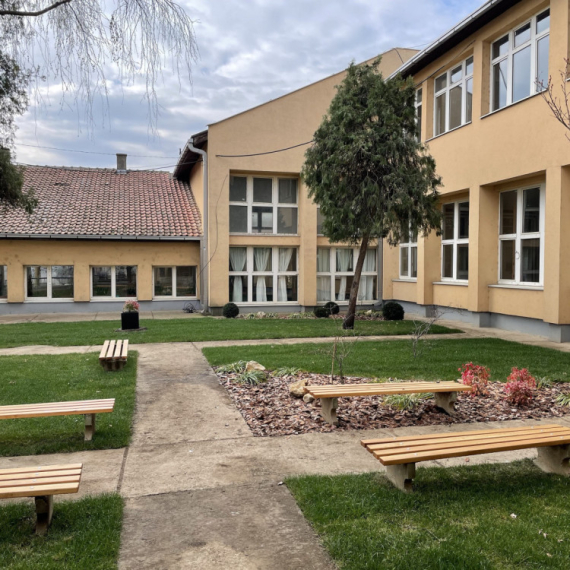German official talks "Serbia recognizing Kosovo"
A senior official of Germany's ruling CDU party has said that Serbia "will have to recognize Kosovo" during its EU accession talks.
Wednesday, 12.09.2012.
13:41

BERLIN A senior official of Germany's ruling CDU party has said that Serbia "will have to recognize Kosovo" during its EU accession talks. Serbia considers the ethnic Albanian unilateral declaration of independence made in February 2008 illegal, and rejects it. German official talks "Serbia recognizing Kosovo" However, when asked by Beta news agency "what it would take for Germany to reactivate its support for Serbia's EU bid", Ruprecht Polenz, chairman of the foreign committee of the lower house of the German parliament, said the country would have to "recognize Kosovo". Polenz spoke about other conditions that Serbia is expected to fulfill, including "implementing the Action Plan agreed with the EU, above all when it comes to justice system reforms", and what he referred to as "characteristically German point" - making progress in prosecuting attackers on the German embassy in Belgrade, in February 2008. Furthermore, Serbia is expected to send out signals that "the process of regional reconciliation is continued and that there will be no attempts to reinterpret history, as was partially done with regard to the genocide in Srebrenica." Polenz continued to say that "the way in which Serbia treats Serbs in Kosovo is very important": "We wish to see parallel structures in the security and administrative apparatus being dismantled, and diminishing financial support. It is clear that this is a gradual process, but we expect not only words and announcements, but also deeds." "It is very important," added the German official, "considering that Germany is represented in KFOR and EULEX, to see that Belgrade, too, is influencing Serbs in northern Kosovo in order to achieve better cooperation with KFOR and EULEX in the north." Asked by the news agency's reporter "whether Serbia should recognize Kosovo at the end of the process of EU stabilization and association", Polenz said: "I always formulated that to my interlocutors from Serbia in the past years and months in this way: it could also have been said, when the request for the start of EU accession talks was submitted, "send the map of your country with the borders'. We will not do that." But, he continued, "there is firm expectation not to relive the Cypriot case": "Therefore, in a given moment, during the accession talks, it will not be possible to circumvent Serbia accepting and recognizing Kosovo, and that is important before joining the EU." Earlier this month, another German official - speaking in his capacity of European parliament president - voiced a similar position, which at the time prompted responses from the EU enlargement commissioner and the Serbian prime minister. Ruprecht Polenz (cduscu.de, file) Beta
German official talks "Serbia recognizing Kosovo"
However, when asked by Beta news agency "what it would take for Germany to reactivate its support for Serbia's EU bid", Ruprecht Polenz, chairman of the foreign committee of the lower house of the German parliament, said the country would have to "recognize Kosovo".Polenz spoke about other conditions that Serbia is expected to fulfill, including "implementing the Action Plan agreed with the EU, above all when it comes to justice system reforms", and what he referred to as "characteristically German point" - making progress in prosecuting attackers on the German embassy in Belgrade, in February 2008.
Furthermore, Serbia is expected to send out signals that "the process of regional reconciliation is continued and that there will be no attempts to reinterpret history, as was partially done with regard to the genocide in Srebrenica."
Polenz continued to say that "the way in which Serbia treats Serbs in Kosovo is very important":
"We wish to see parallel structures in the security and administrative apparatus being dismantled, and diminishing financial support. It is clear that this is a gradual process, but we expect not only words and announcements, but also deeds."
"It is very important," added the German official, "considering that Germany is represented in KFOR and EULEX, to see that Belgrade, too, is influencing Serbs in northern Kosovo in order to achieve better cooperation with KFOR and EULEX in the north."
Asked by the news agency's reporter "whether Serbia should recognize Kosovo at the end of the process of EU stabilization and association", Polenz said:
"I always formulated that to my interlocutors from Serbia in the past years and months in this way: it could also have been said, when the request for the start of EU accession talks was submitted, "send the map of your country with the borders'. We will not do that."
But, he continued, "there is firm expectation not to relive the Cypriot case":
"Therefore, in a given moment, during the accession talks, it will not be possible to circumvent Serbia accepting and recognizing Kosovo, and that is important before joining the EU."
Earlier this month, another German official - speaking in his capacity of European parliament president - voiced a similar position, which at the time prompted responses from the EU enlargement commissioner and the Serbian prime minister.































Komentari 43
Pogledaj komentare